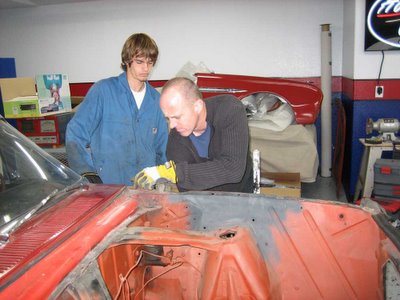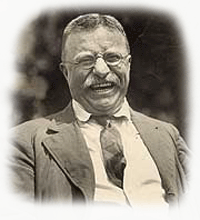A magnificent farewell to his brother, Marcel, is written by Charles Krauthammer in today's
Washington Post. A very moving tribute to a wonderful older brother.
On this cloudy morning in Southern California, a rarity, I have been thinking about the impermanence of things. Almost two years ago, my mom bravely passed away. One year ago, I resigned from my ten year tenure as pastor at a local church. Four months ago, my dad suddenly and surprisingly passed away. I had the common human illusion that some things would last forever.

A funny picture of my mom.
And now I am seeing it in my kids as they grow up. In their younger days, when I stayed home with them, I was everything to them. I fed them, changed their diapers, washed them, walked them, played with them. I loved them, and they adored me. And now my son is on the verge of getting his driver's license, and his independence grows by the hour. (Of course, he still needs rides from the parents, so we are still good for something.) His social world revolves around friends from school. He is often home just long enough to get what he needs, and then he is off to friends' houses. Or they are over here, playing XBox and listening to loud music.
Of course, I went through a similar phase with my parents, as we all do, I suppose. On one summer trip back to Minnesota to visit my dad (post divorce, mandatory visit, gblah, blah, blah) I had just gotten my drivers license. On the last day I was there, I asked to borrow my dad's car, and I drove from Columbia Heights to Saint Anthony to visit my friends. I stayed away all day, and most of the evening. I got back to my dad's house very late. He was already in bed.
The next morning, he drove me, in silence, to the airport. We didn't talk all that much anyway, but this silence was more pronounced than most. Years later, my dad's wife, Susan, told me how hurt my dad had been that I had been out all night with my friends, instead of staying with him.
I now realize what my dad may have been feeling. However, he never communicated that to me, and I never actually knew what the silences were about. I read them as anger, dislike, disapproval, rejection, all those great emotions cooked up in a young, insecure teenage boy's heart. Instead of, "Son, I really would like to spend some time with you tonight, so come home early", I got silence. And since four months ago, that silence is forever.
In the past few years, my brother and I have become closer than ever. We went through a long phase as kids when he was just the younger brother, trying to tag along with me. I resented it at the time. In high school, we went separate ways. I went to college, he worked on cars. I fell in love with ideas, he fell in love with anything that had wheels. I wanted to be respectable, he wanted to have a good time. I had a religious awakening, and spiritual conversion, while Dave remained his old self.
Slowly, over the years, our paths have converged. We both got married and had kids. My son is the only male child on our side of the family, and Dave has all daughters. So naturally, Mark is well loved by his uncle! Our values have grown together as well. Dave is now a family man, a respected fire captain, and a church-goer. When we visit his home, we often will go to church with Dave and Karen and the girls.
 Uncle Dave and Mark work on the 1963 Falcon at Hoser's Garage in Danville.
Uncle Dave and Mark work on the 1963 Falcon at Hoser's Garage in Danville.And we have worked together more, which is the primal language of males. We worked for a glorious week in MN with our dad tearing down the old yellow fishing cabin we called home during our childhood summers. When we bought our first house, Dave came down several times to help me do some projects. I have helped him on his garage. And now he is rebuilding a 1963 Falcon for Mark, while Mark and I drive 400 miles just to watch. Still, we are together, and we enjoy the company.
I have loved those days. And I like this time. But I see the handwriting on the wall, these times will not last. If the last two years are any indication, things will continue to change. I am not liking where those changes will lead, but am helpless to resist. So I do my best to seize the day, enjoy the moment, and let the future be what it will. And I will work on being grateful for the time(s) that have been gifted to me.
 I like to travel. But what does one do on long trips to keep oneself awake? I listen to Dire Straits--loud. I also count things. There is always the license plate game. You know, find as many states' license plates as possible. Well, I ran across this Road Sign Math site today. Incredible. The sign at left is the one that evidently started it all. Some guy with a head for numbers and not a lot to do on a trip. The web site lists road signs by state, and country.
I like to travel. But what does one do on long trips to keep oneself awake? I listen to Dire Straits--loud. I also count things. There is always the license plate game. You know, find as many states' license plates as possible. Well, I ran across this Road Sign Math site today. Incredible. The sign at left is the one that evidently started it all. Some guy with a head for numbers and not a lot to do on a trip. The web site lists road signs by state, and country. My favorite is this one. I had to think about this one for a while. And after seeing the "solution", I had to look up the math. I'm embarrassed, I was a math major in college!
My favorite is this one. I had to think about this one for a while. And after seeing the "solution", I had to look up the math. I'm embarrassed, I was a math major in college!








